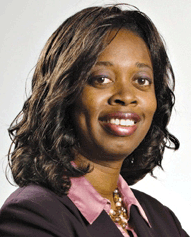


|
|
Click HERE if you have trouble viewing this page |
|||||||||||||||||||||||
May 5, 2010It Takes A Village | ||||||||||||||||||||||||
|
The Birmingham News on Sunday investigated and reported on the many faces and lives of the people caught up in the cycle of violence that targets a segment of our community. Most of the faces -- both perpetrators and many victims -- unfortunately are black males. The No. 1 cause of death among black males, especially those under 25, is homicide, mostly by guns. This took me back to Carolyn Johnson and her story. Back to the February screening of the documentary, Not My Son," This powerful video essay by Dwight Cammeron vividly showed the grief and anguish that will forever torment the parents of children murdered in this violence. Though we may not experience it first hand, we are touched by it because we know some of the people like Carolyn and the communities left largely on their own to cope with the tragic outcomes. After seeing the documentary, I immediately thought, 'What is being done about this? Where are the clinical researchers, psychiatrists, doctors, and a whole slew of health care and social services professionals who are studying ways to help the community put an end to these horrible statistics? Does anybody care enough about our community to DO SOMETHING? Well, fortunately, Dr. Carden Johnston stood up and said yes, some folks care. Dr. Johnston, former president of the national American Academy of Pediatrics and a much-respected local pediatrician, said that his peers are doing what they can to combat the issue. (In fact, the only vocal healthcare advocate against the violence that I wrote about as a police reporter was Dr. David Reynolds.) Dr. Johnston invited me and Ms. Johnson to meet with a Boston doctor whose community had experienced success in reducing youth homicides and violence. This guy, I had to meet. Dr. Robert Sege, a leading expert in healthcare's role in reducing violence, talked about the Academy's latest program, Connected Kids. It takes a hands-on, community based approach to address the root problems of violence among youth at home and in the community. They target at-risk kids who are disconnected from their families, schools and/or communities, and work with these groups to reconnect them in meaningful ways. In talking with Dr. Sege, he mentioned the dramatic drop in youth crime and violence in general during the 1990s when the City of Boston and community leaders got downright serious about ending the unnecessary carnage they saw. Everyone was involved -- the attorney general, the police and city officials, social workers, doctors, school officials and, most importantly, the spiritual leaders of the Ten Point Coalition. They all formed important alliances and held strategy sessions to combat the violence issue. More interestingly, they met with the gang members and other youth who were causing the problems. They promised counseling, jobs and other services if they backed away from criminal activity. If they didn't, the hammer would fall, hard. The result? In one year (1999), Sege said, not one youth was murdered. This dramatic sea change was dubbed "The Boston Miracle." Cities across the country and around the world have been trying to duplicate that success. (By the way, I noticed that poverty, not race, in affluent cultures seems to be the common factor in violence in the UK. The main difference? Limited access to guns!) I brought my own little camera to the April meeting and asked Ms. Johnson to interview the kind doctor from Boston. If you can excuse my rough video/sound editing skills, I think you will find the conversation enlightening. Part 1 Part 2 I posted a copy of the written comments during Monday's live chat with Birmingham News reporter Eric Velasco, I was most impressed by a woman who lived through her own Killing Years and survived longer than many of her friends to grow wiser. Again, what's the solution?, I wondered. My question is, why isn't someone leading a similar effort here? Are there not enough crying mothers and broken-hearted family members and scarred neighborhoods in Birmingham? Is it OK to keep reading about murdered men. women and children, as long as it is "over there" and not in my backyard? I know there are a lot of people, like Ms. Johnson and the Parents Against Violence Foundation, doing what they can to make a difference. But we need more. Not more people, but the strategic use of "The Village," people and resources we already have to effectively deal with this problem of violence, including the stuff that goes on behind closed doors and has no neighborhood boundaries. If Boston, a city very much like Birmingham in many ways (especially when it comes to racial tensions), can produce a miracle, why not Birmingham? I can think of no place better for "the Birmingham Miracle" than the Magic City. What do you think? vickii |
|||||||||||||||||||||||


